
Upholstered headboards can add a touch of luxurious character and tactile texture to a bedroom, helping to bring an element of cozy softness to the space. However, headboards are a common feature that many of us forget to regularly clean.
Even though we do not sleep on our headboards, and likely rarely touch them, upholstered headboards can get incredibly dirty, collecting dust, grease, and bacteria that can all come to impact our sleep hygiene and quality.
As such, it is important to learn how to clean upholstery when exploring how to clean a bedroom to keep our headboards in top condition and combat allergens.
How to clean an upholstered headboard
‘I highly recommend deep cleaning an upholstered headboard at least once a month to prevent buildup of dirt and dust mites,’ begins Eliana Coca, professional house cleaner and owner of E.C House Cleaning. ‘An upholstered headboard attracts dust, odors, and even bed bugs over time if not properly cleaned. It's important to maintain because the headboard is in close proximity to where you sleep, and you want to ensure the area is hygienic and allergen-free.'
1. Vacuum first
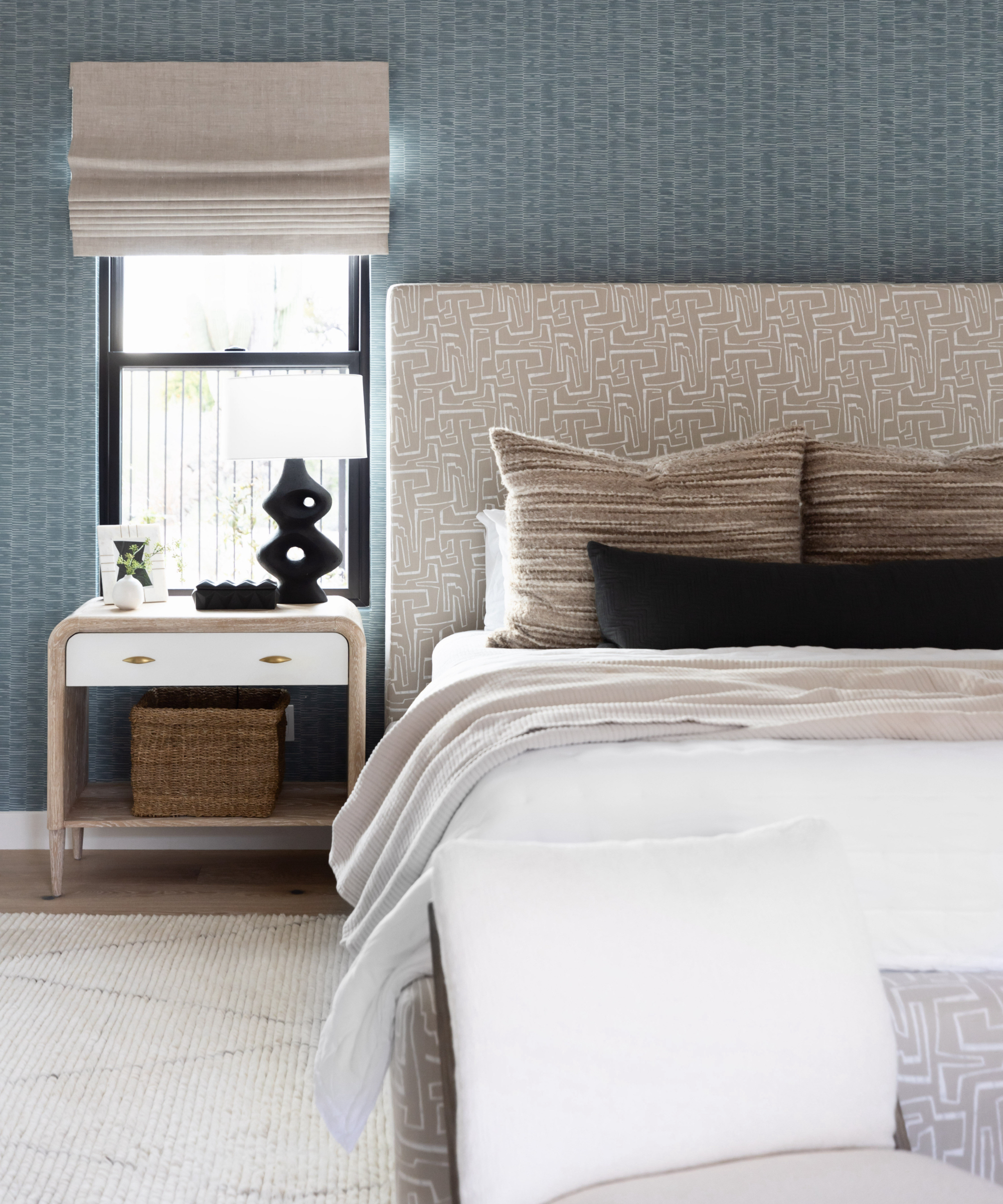
The quickest and easiest way to refresh an upholstered headboard is to vacuum away dust and loose debris such as hair, says Chris Willatt, cleaning expert and owner of Alpine Maids. However, it is important to use the right technique to vacuum furniture without damaging upholstery, he adds:
‘Using a vacuum with a soft brush attachment or using a soft brush attachment is the best way to clean an upholstered headboard,’ he suggests. ‘Lightly use the soft brush to loosen some of the dirt and grime stuck in the tufts of the upholstery and use the vacuum to suck it up.’
2. Check the care tag
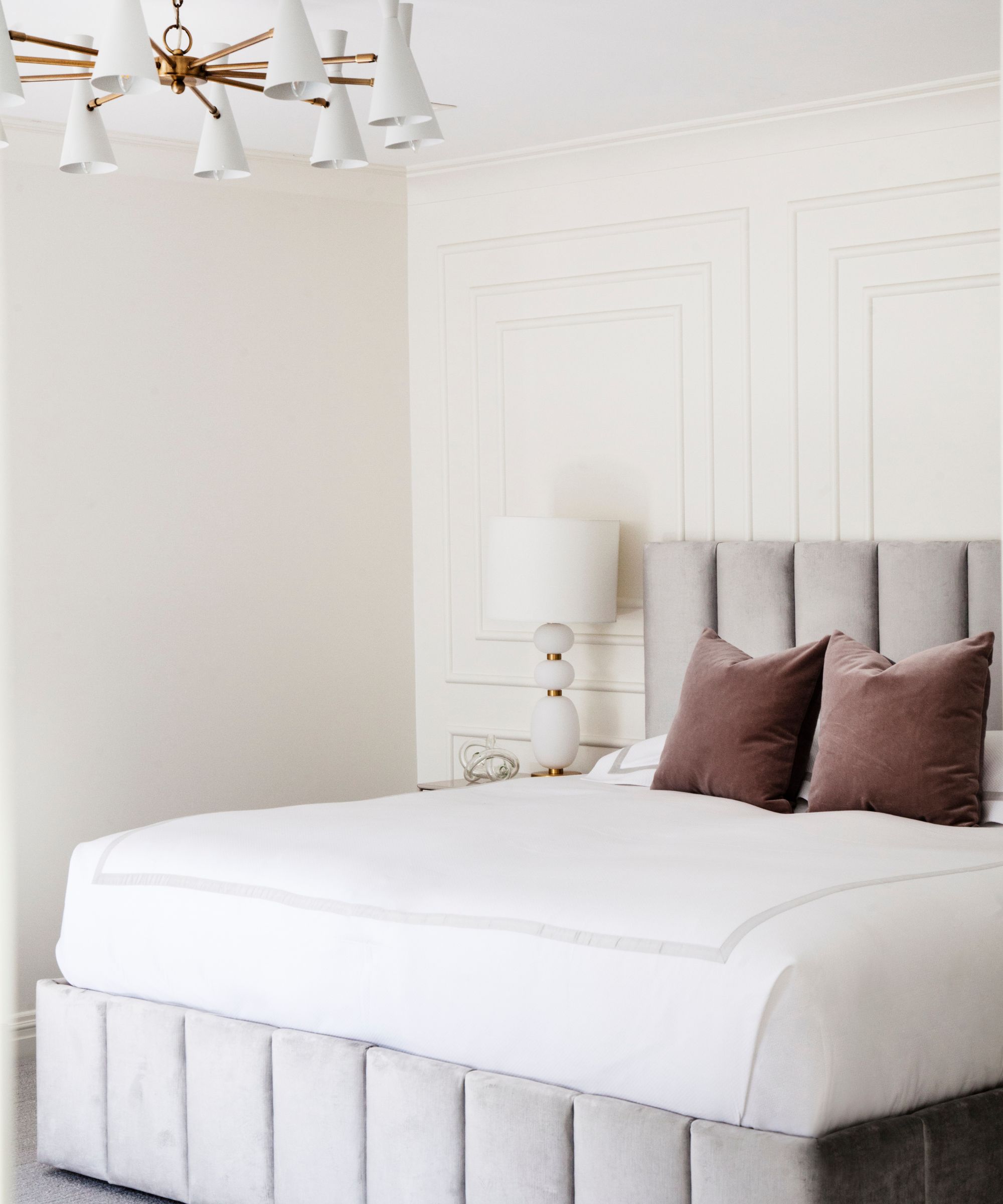
Just as the care tag on a garment has laundry symbols to detail how to wash it, your upholstered headboard will have a care tag detailing which cleaning tips work best for the fabric points out Ken Doty, cleaning expert and COO at The Maids:
‘Check the manufacturer's instructions that come with your bed. The tag will have a one-letter cleaning code that will inform you as to the right way to clean the upholstery,’ he explains. ‘The cleaning codes are:
- S: Dry cleaning only, don't use any water. It's probably best to use a professional service for beds that have this closed.
- W: This type of fabric is safe to clean with water-based solutions. You could also find foam upholstery cleaner to effectively clean the fabric.
- W/S: A combination of the two codes, means that both water-based cleaning solutions and dry-cleaning solvents are safe.
- X: This code signifies that you may only clean your bed with a vacuum and brush. No liquid solvents should be used or you risk damaging the fabric.
If your upholstered headboard is not dry clean or vacuumed only, you can move on to using liquid cleansers to refresh the fabric at home.
3. Dust with a damp microfiber cloth
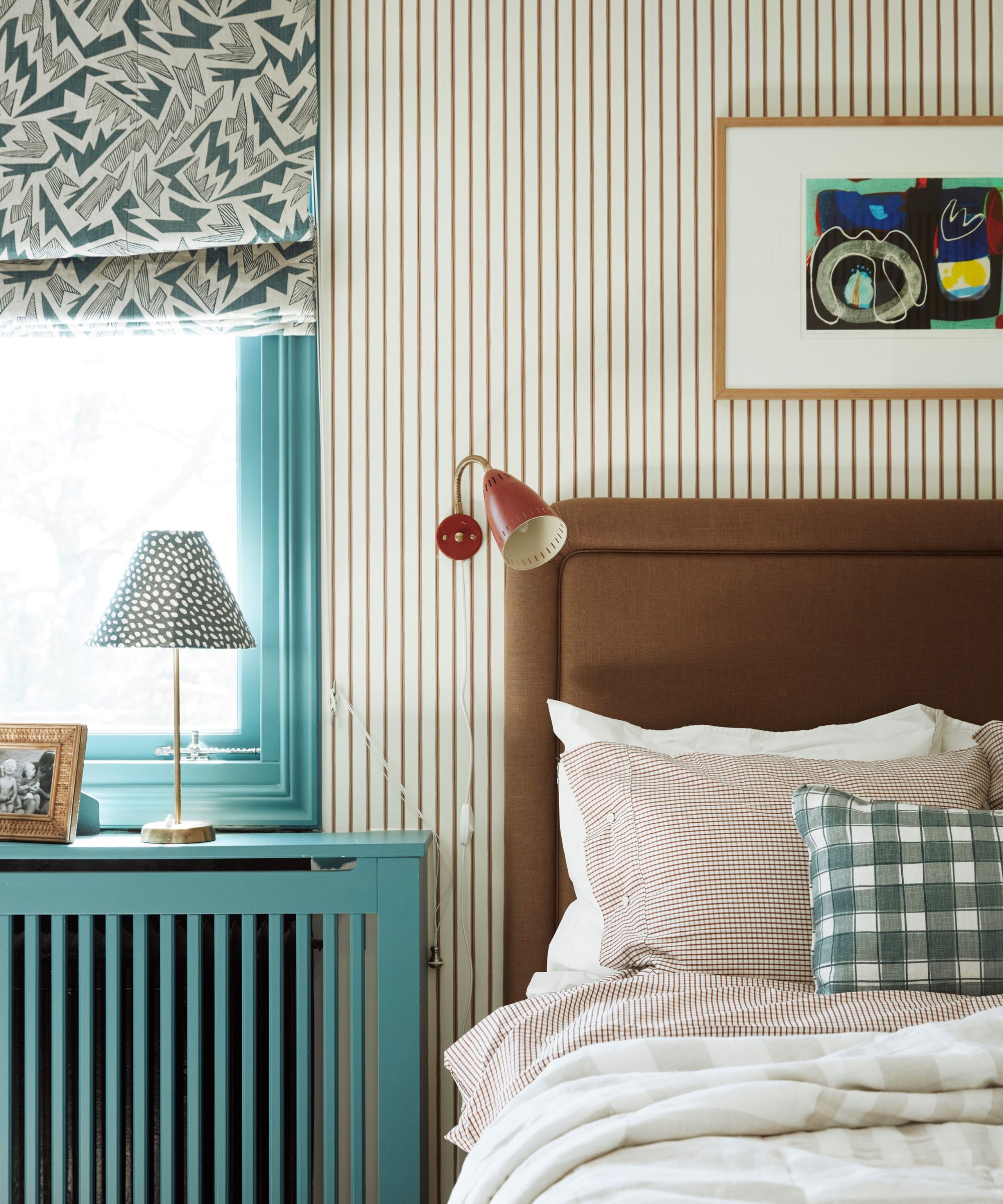
So long as the headboard is safe to clean with water, you can give it a wipe over with a microfiber cloth dampened with water (and optionally some mild detergent to give your headboard a fresh scent), suggests Ryan Knoll, cleaning expert and owner of Tidy Casa:
‘This wipe-down should be slow and gentle, moving in the same direction to prevent lines and streaks. The dampness of the microfiber will help pick up pet hair, dust, and debris. It’s a simple trick that works wonders on most upholstery (and can be great to help clean a sofa without a vacuum)– especially for a home with a lot of pet hair.’
4. Spot clean stains

The golden rules of stain removal dictate that any stain or mark should be spot-cleaned as soon as the stain happens. This is the best way to ensure that the stain doesn't take hold – especially on items that you cannot put in the washing machine.
Ryan Knoll, cleaning expert, recommends using a dedicated stain remover, such as Resolve Multi-Fabric Cleaner Upholstery Stain Remover, at Walmart.
‘Always test on a small, hidden area like the back of the headboard before going all in,’ he reminds us. ‘Some upholstery is better than others at taking different cleaning chemicals.’
5. Deodorize with vinegar
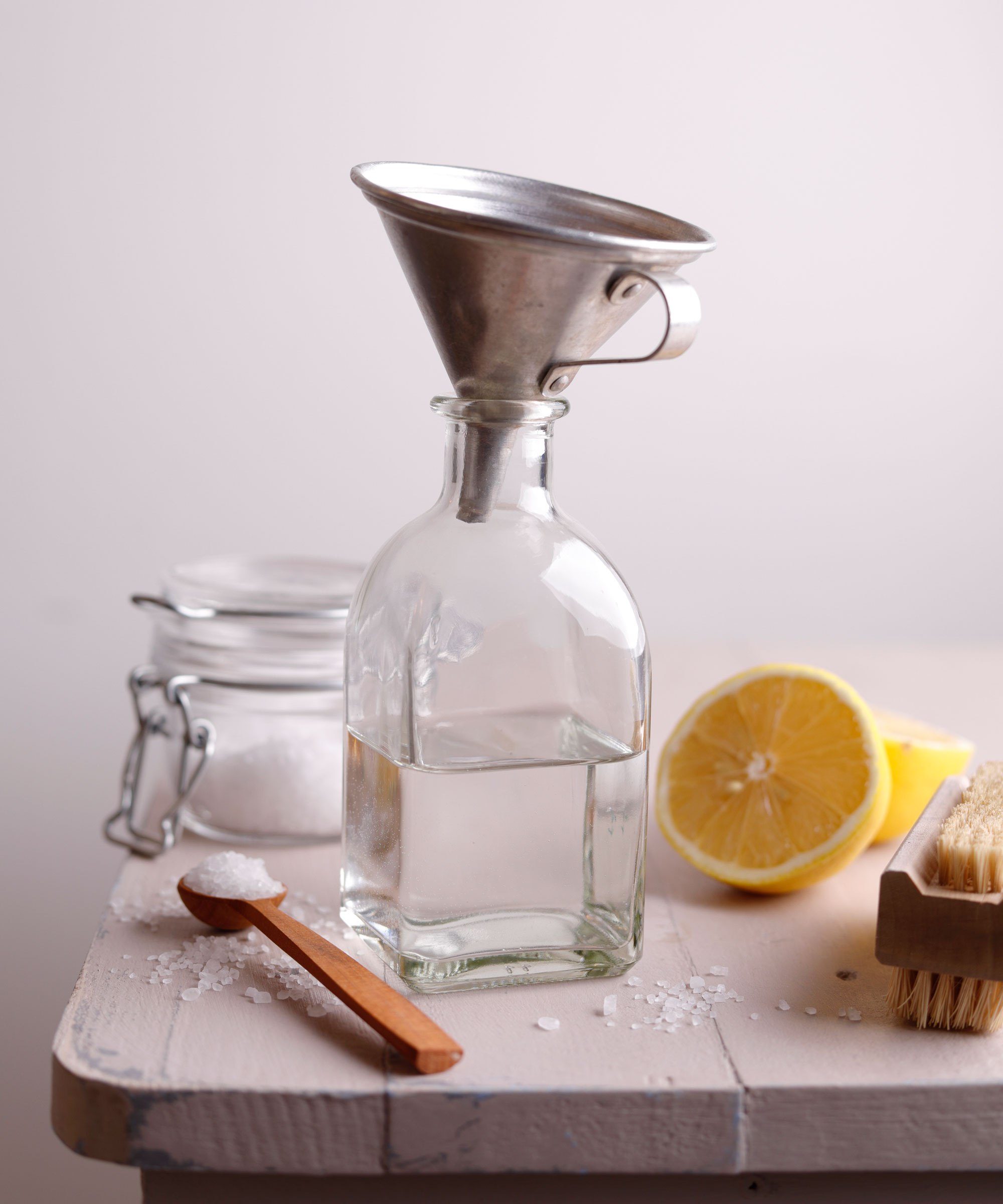
If you need to get rid of musty smells in a bedroom, consider cleaning your upholstered headboard with vinegar, suggests Chris Willatt, a cleaning expert. Simply add a cup of vinegar to your cleaning solution, or lightly spritz the headboard with a mix of equal parts water and vinegar to help remove odors caused by a build-up of bacteria.
‘Cleaning your headboard with vinegar also prevents mold and mildew from growing on it,’ he adds – ideal if you have accidentally spilled food or drink on your headboard when enjoying a late-night snack.
If you are not a fan of the vinegar scent (and who can blame you), allow the vinegar to air out and dry with the windows open before masking the scent with a quality linen spray – opting for the best scents for sleep to promote better rest.
6. Steam clean sparingly
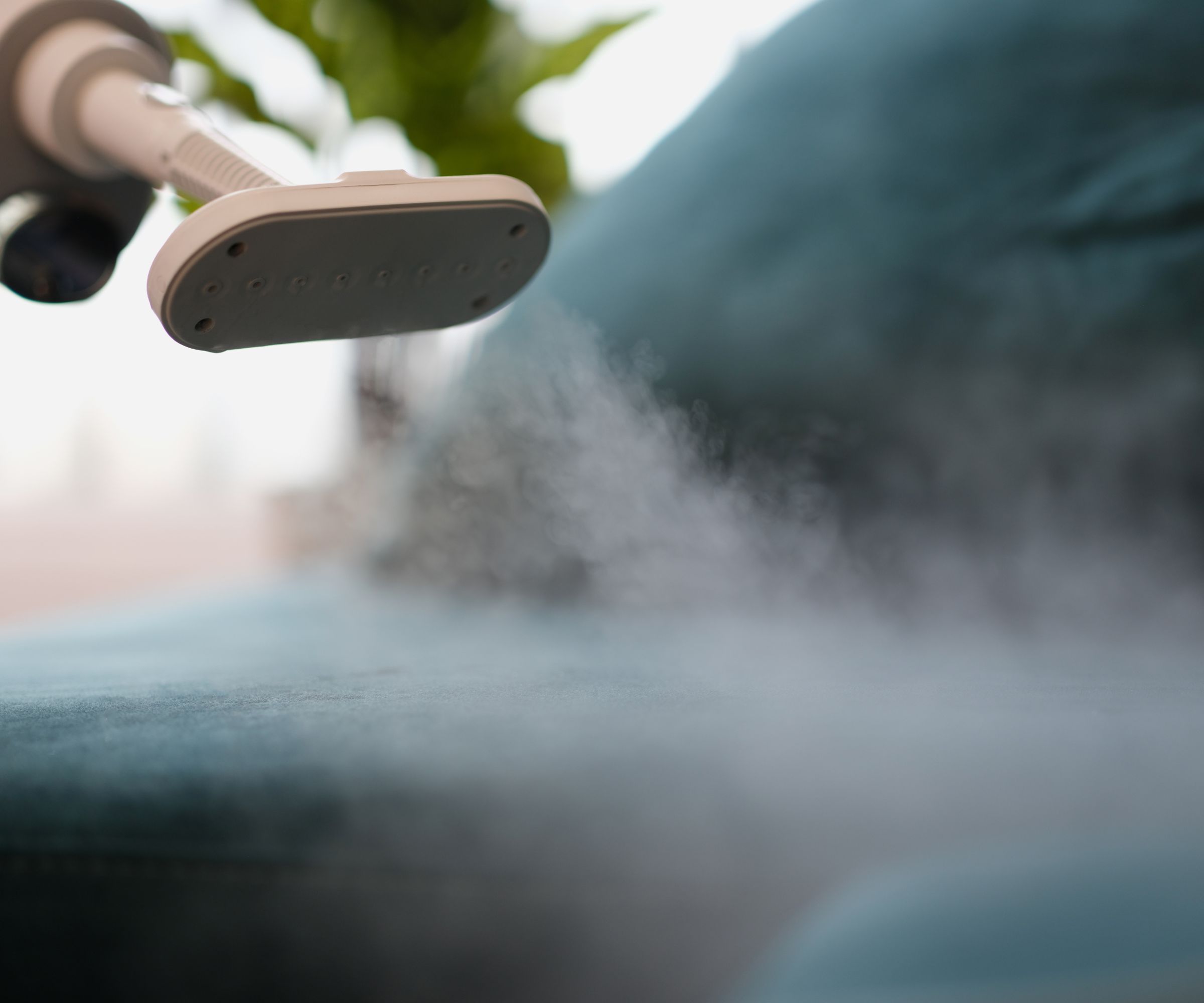
More often than not, it is fine to steam clean an upholstered headboard to help kill bacteria and refresh the fabric. That being said, it is important to check the care tag and materials first to avoid damaging or melting cheaper or synthetic fibers, warns Ryan Knoll, cleaning expert.
If your headboard is safe for steam, ‘a steam cleaner like the BISSELL Little Green ProHeat, at Walmart, is great at getting into the fibers, lifting dirt, and removing the bacteria that cause odors. Once again, test in a non-conspicuous area. Cheaper fabrics can melt with enough heat which wouldn’t be fun.
‘Especially after a steam cleaning it’s important to help the headboard dry quickly to avoid that mildew smell,’ Ryan adds. ‘Airflow is your friend here. Get fans going and open the windows to help speed things up.’
FAQs
Why is it important to clean an upholstered headboard?
‘Upholstered headboards gather dust, allergens, and all sorts of nasties over time. Regular cleaning keeps that sleeping environment healthy, and zen, especially for people with allergies,’ explains Ryan Knoll, cleaning expert and owner of Tidy Casa.
Are upholstered headboards hard to keep clean?
Upholstered headboards are certainly more difficult to keep clean than other types of headboards. This is because the upholstery is able to absorb oils, products, and odors while also collecting dust and dirt. They are also a little more tedious to clean than, say, a metal or wooden headboard, which you only need to wipe down with a damp cloth. That being said, with regular weekly maintenance, they shouldn’t add too much extra time to your weekly chore list.
Cleaning an upholstered headboard does more than help you sleep better. It also helps to keep it looking its best and, perhaps most importantly, it ensures the headboard lasts, so you don’t have to splash out on a replacement any time soon.







